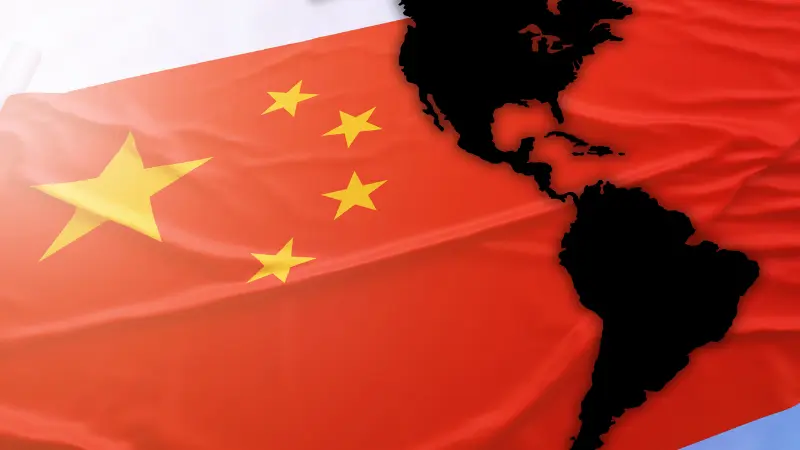
In a global landscape marked by geopolitical tensions and the resurgence of nationalist sentiments, China is consolidating its presence in Latin America with a proposal for economic, political, and cultural cooperation that sharply contrasts with the approach of the United States, particularly during Donald Trump’s administration.
During the panel analyzing “CELAC and China in the Face of the Reconfiguration of the Global Order,” organized by the Center for Research on Latin America and the Caribbean (CIALC) at the National Autonomous University of Mexico (UNAM), experts noted that the Asian nation currently offers a window of opportunity for Latin America by positioning itself as a reliable, pragmatic, and less interventionist partner.
“There is clearly a relaunch of the China–Latin America relationship. This is an opportunity that cannot be missed,” said researcher José Briceño Ruiz from CIALC.
Briceño Ruiz emphasized that the bi-regional cooperation promoted by China is based on principles such as sovereign equality, non-intervention, and mutual benefit—an approach that strongly resonates with Latin American governments that have been wary of U.S. pressures on trade, migration, and security.
Among China’s concrete initiatives toward Latin America are:
Credit lines totaling US$9.2 billion for CELAC member countries
Investments in infrastructure, clean energy, telecommunications, and artificial intelligence
Visa exemptions for citizens of Brazil, Chile, Argentina, Peru, and Uruguay
Over 3,500 academic scholarships and 10,000 training opportunities in China for Latin American students and technicians
These actions, according to Briceño, represent a more horizontal form of cooperation, free from political impositions or ideological conditions.
In contrast, analysts pointed out that the Trump administration has adopted a view based on LatinAmerica’s subordination and dependency. The U.S. President has made threats of military intervention, broken trade agreements, and promoted openly xenophobic policies, particularly targeting Latin American immigrants.
“The China–CELAC Forum can provide Latin America with economic and diplomatic tools to counter the erratic and aggressive U.S. policies,” added Briceño Ruiz.
However, the relationship with China is not without its challenges. Claudia Edith Serrano Solares, an academic specialist from the Aragón School of Higher Studies (FES Aragón), cautioned that the region must be careful not to fall into a new form of dependency—this time with China as the primary investor and player in strategic sectors such as lithium, hydrocarbons, and telecommunications.
“Proximity to the United States will not disappear. We must find a balance between both relationships,” she stated. Quoting Cuban thinker José Martí, she reminded the audience that “to change masters is not to be free.”
Brazilian scholar Roberto Goulart Meneses, from the University of Brasília, emphasized that although China has invested over US$66 billion in Brazil since 2009, Beijing’s participation in forums such as CELAC is crucial to strengthening multilateralism and avoiding unbalanced bilateral relations.
He recalled that Brazil withdrew from CELAC during Jair Bolsonaro’s administration, but returned under President Luiz Inácio Lula da Silva as part of an effort to rebuild its regional and international leadership.